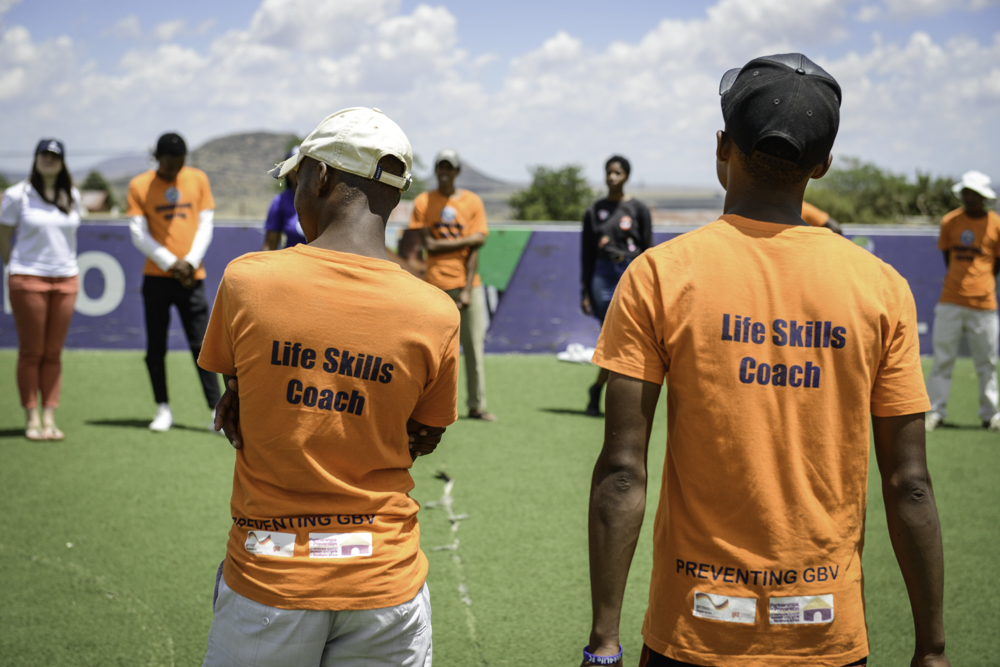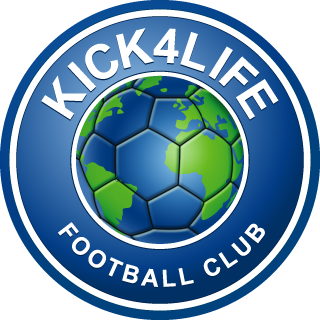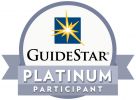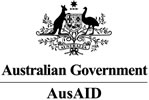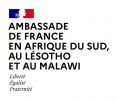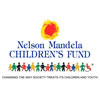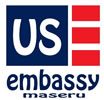Good Health & Wellbeing through Football
Young people in Lesotho face severe, multiple and overlapping health challenges that can have a wide range of impacts on their development and future prospects. The Good Health & Wellbeing through Football Curriculum aims to fill this gap in provision, providing targeted health education specifically designed to engage and motivate youth around the most pressing challenges in Lesotho, including, HIV/AIDS, hygiene & sanitation, nutrition, drug, alcohol and substance misuse and mental health.
Many of these health needs and challenges are linked to the underlying societal issue of HIV/AIDS, and our integrated approach to this project addresses wellbeing in a holistic way. We believe this is essential to improving the overall long-term health chances of young people in Lesotho. The curriculum also includes significant components of gender equality and life-skills development, which are critical in supporting the adoption of healthily attitudes and behaviours.
As well as promoting behaviour change to improve health chances and prevent poor health, improving access to services is a key factor in addressing existing health conditions and needs. The project addresses this need through individual referrals to specialist health services dependent on the specific needs of participants. Notably this includes referrals to HIV testing, counselling and medical follow-up.
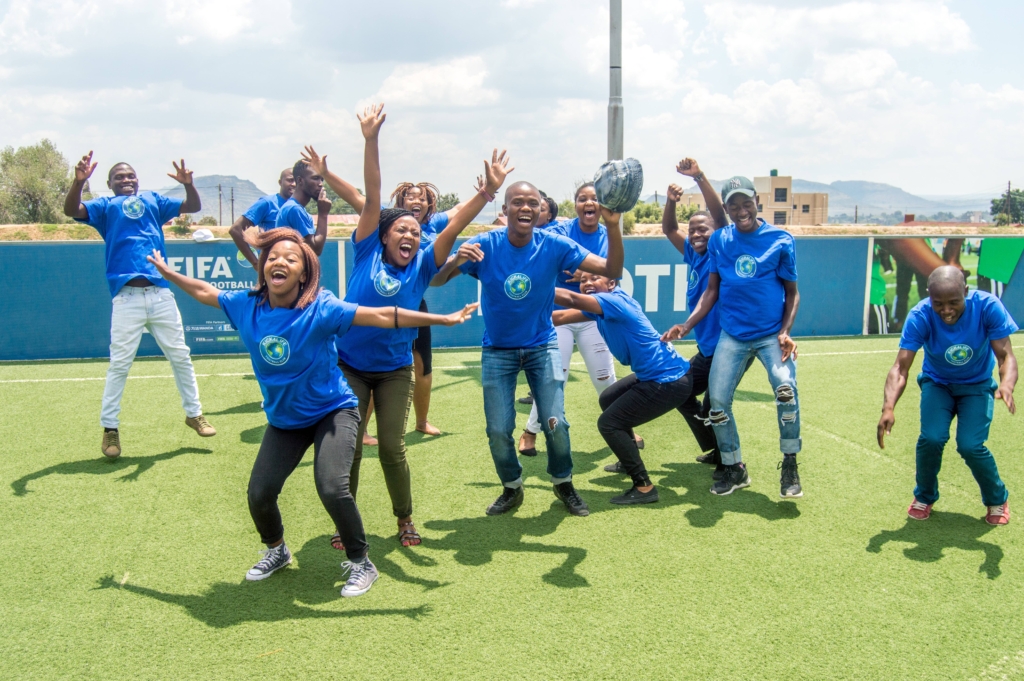
Girls United
Lesotho is a patriarchal society that normalises gender inequality. In 2014 33% of women and 40% of men expressed a belief that a husband is justified in beating his wife in certain circumstances (LDHS). 86% of women have experienced some form of Gender Based Violence (GBV) at least once in their lifetime, including partner and non-partner violence. With many women unaware of their rights or how to uphold them, Gender Links research also indicates that GBV remains a primary driver of HIV infection in Lesotho.
Girls United aims to empower girls & young women with sexual & reproductive health education, knowledge of their rights, preventing and responding to gender-based violence, and life-skills development notably self-confidence.
Delivered by young female leaders, the project includes:
– A 14 session sports-based curriculum covering gender rights, sexual & reproductive health education and life-skills development.
– Mixed-gender football tournaments that integrates activities to engage boys as activists against gender-based violence.
– Referrals to health, legal, protection and psychosocial services.
– A young leaders network for female empowerment and support on an ongoing basis. Young leaders identified through the curriculum have the opportunity to join a young leaders network and become leaders in promoting social change in their communities on an ongoing basis.
Monitoring & Evaluation includes pre and post course assessments, focus groups and coach observation. Follow up focus groups are conducted at intervals after the course to assess on-going impact, including the impact of the young women as advocates of healthy behaviour in their families and communities.
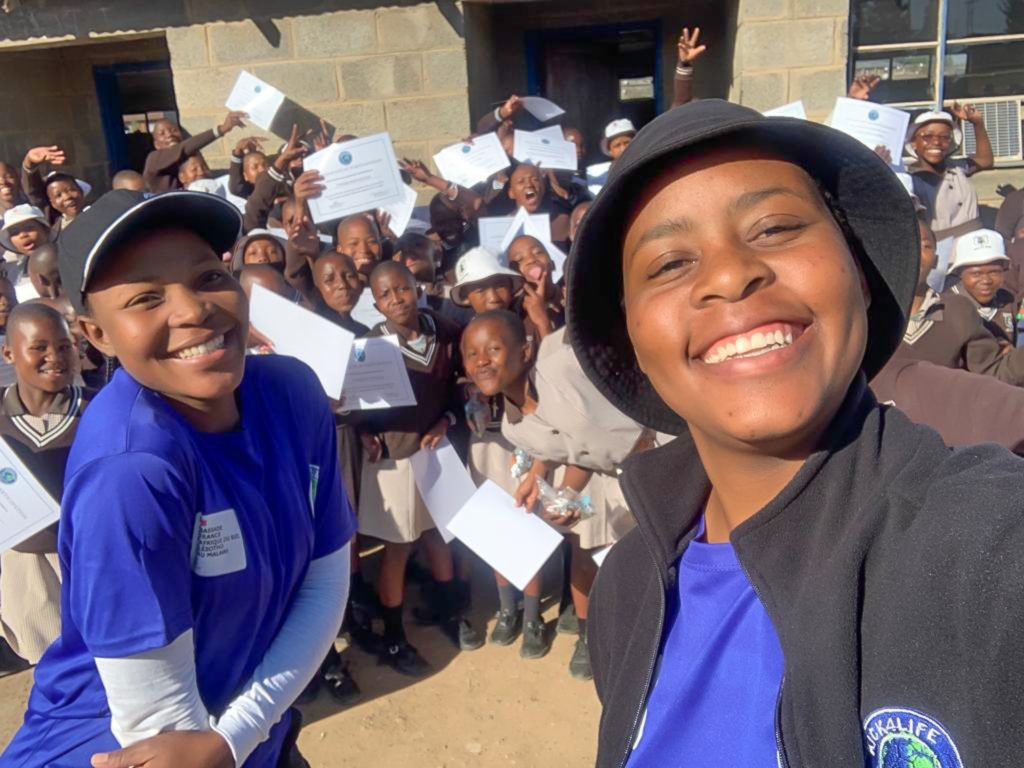
Champions United
Champions United aims to engage adolescent boys and young men aged 13-19 in programming that helps young males achieve understanding on issues surrounding gender inequality and empower them to be champions in preventing Violence Against Women and Girls (VAWG). The programme sessions create safe spaces for adolescent boys and young men to discuss difficult topics, such as VAWG in the home, as some of them may be direct or indirect victims of it as well.
The specific objectives of the programme are:
1). To stimulate reflection and discussions amongst men and boys, as well as between men and boys and women and girls, on current notions of masculinity (i.e. what it means to be a man).
2). To sensitize men and boys, as well as women and girls via mixed-gender tournaments as part of Champions United’s intervention, on GBV, women’s rights and the benefits of positive masculinity for both women and men.
The programme comprises of 8 sessions focusing on themes including: the driving factors of VAWG; gender rights promotion; gender norms; and norms related to masculinity and life skills development. As per the overall objective of the programme, the sessions all stimulate reflection and discussions amongst the participants.
Champions United is funded by GIZ Lesotho and began running its pilot phase in September 2019, reaching at least 500 adolescent boys and young men between 13-19 years with information and training on how to address issues surrounding gender inequality and VAWG. In its second phase, the Champion United programme aims to reach even higher numbers of participants and will complement the sessions with the launching of the Men’s Solution which will target at least 1000 subscribers interested in following men’s premier league games with anti-GBV SMSs every time they use the platform.
